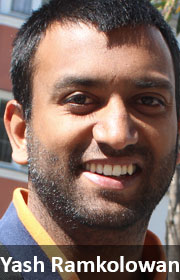 The advent of new technologies continues to disrupt competition in a number of traditional markets, many of which have operated in the same manner for decades.
The advent of new technologies continues to disrupt competition in a number of traditional markets, many of which have operated in the same manner for decades.
Examples of this include the metered taxi industry, where Uber is quickly becoming both a noun and verb in South African conversation, and the television industry (hello, Netflix).
From a telecoms point of view, so-called over-the-top (OTT) communication providers such as WhatsApp, WeChat and even Facebook Messenger have revolutionised the way in which we communicate.
Not unusually, in almost all these disrupted industries, traditional players have called for “better regulation” of these new (and technologically advanced) entrants. Recently, successful lobbying by certain mobile operators has led to parliament’s portfolio committee on telecoms & postal services scheduling a hearing into the possible regulation of OTT services in South Africa.
 The core argument from these mobile networks appears to centre on the suggestion that OTT providers use infrastructure for (in) which they do not pay (invest), and that they are therefore “free-riding” on expensive assets built by the operators. There has also been some argument that OTT providers are not sufficiently regulated.
The core argument from these mobile networks appears to centre on the suggestion that OTT providers use infrastructure for (in) which they do not pay (invest), and that they are therefore “free-riding” on expensive assets built by the operators. There has also been some argument that OTT providers are not sufficiently regulated.
The question is whether there is merit to these arguments, or whether these claims simply represent the mobile operators’ attempts to frustrate competition from more technologically advanced forms of communication.
First of all, let’s deal with the argument that OTT providers are free-riding on the operators’ infrastructure.
Anybody that uses the range of OTT providers (anything from WhatsApp to Skype) on their mobile devices (and through mobile networks) will know that there is a cost attached to doing this. Specifically, the users of these services pay the mobile networks in the form of data charges every time a message is sent and received. And, as opposed to traditional mobile and text communication, in these cases both the sender and recipient pay data charges.
So, while the cost of communication may be lower for each individual party, it is important to remember that both parties pay mobile operators when using OTT services. Ultimately, users are paying for the use of the network operators’ infrastructure through data charges.
Consider also that South Africa’s mobile networks have long operated in an oligopolistic environment, with four mobile network operators (two much larger than the others) accounting for all 85m connections. In this environment, the leading (and oldest) operators have earned substantial returns on their investments, and continue to do so. Even in an environment where SMS and traditional voice revenues are beginning to decline, these operators are seeing huge increases in data revenues and continued good returns.
It is worth noting that South Africa’s third largest mobile network, and historically the underdog in the market, Cell C, has a different view, arguing that regulating OTT services could harm the industry and consumers. Instead of lobbying for more regulation on OTT providers, it has chosen to partner with them. This is the stance increasingly being taken by mobile operators internationally.
From a regulatory perspective, the debate is more nuanced. It is true that mobile operators face a heavier regulatory burden than the OTTs, but this in itself is not necessarily a justification for further regulation.

For example, regulations relating to quality of service are moot in a market where consumers are very easily able to vote with their feet and switch OTT providers.
While such regulation may have been necessary when we only had two network operators providing communication services, it is not clear that such regulation should be imposed on rapidly proliferating OTT providers.
Over-regulation of these new entrants may only serve to entrench the position of existing operators and throttle the benefits that arise from increased competition, such as lower prices and more market innovation.
A cautionary tale can be found in the development of mobile money, which has failed to take hold in South Africa despite numerous potential benefits to consumers. This is partly because of the heavy-handed regulatory approach taken by South Africa, which treats mobile money providers as if they were banks.
A key principle of regulation is that it needs to be proportionate to the risk of harm to consumers. Ultimately, each aspect of regulation being proposed for OTT services should be carefully weighed in terms of the cost and benefit to consumers. From an economic perspective, this would be far superior than imposing a blanket approach, simply to appease the incumbent mobile operators.
It is interesting to note that in more developed telecoms markets, the debate has gone much further, focusing on the principle of net neutrality (the principle that consumers should be able to go wherever they want, and whenever they want, on the Internet, without facing discriminatory traffic charges).
There is no doubt that mobile operators are in an unusual and potentially profit-threatening situation
Although many mobile operators and Internet service providers resisted this change, there is now increasing acceptance of this principle globally.
Similarly, whereas many operators in developed markets have attempted to fight the rise of OTT providers by lobbying for tighter regulation on these services or by banning them entirely, governments are increasingly opting not to regulate such services, or are employing a “light touch” regulatory approach.
In South Africa, mobile operators are currently directing their lobbying efforts on services that compete with their traditional voice and text communication services; effectively using the regulatory framework to try and raise barriers to competition in their sector.
While they have no problem with mobile users accessing high bandwidth-using applications — don’t we all watch at least one YouTube video a day? — they are looking to preclude consumers from using the same bandwidth to access services which compete with their core business offering. For users of these services, this does not add-up. If you are already paying for the bandwidth, why should the operator care what it is used for? And isn’t YouTube “free-riding” on their networks just as much as WhatsApp?
There are further and more complex questions as to how regulation of OTT space would be implemented. What would be classified as an OTT provider, considering that the forms of communication that are available through data networks are ever expanding and ubiquitous?
Would regulation (or prescribed higher charges) also apply to OTT providers that are accessed through broadband (and fibre) networks? How would this be monitored? Would there be rules for users that opt to hide their Internet activity through the use of virtual private networks and other similar services? How would OTT services provided by the mobile operators themselves be regulated?
There is no doubt that mobile operators are in an unusual and potentially profit-threatening situation. Prompted by disruptive technologies, entrenched players are finally beginning to face real competition for the services they provide. Their response, it would seem, has been to seek protection from the regulator. The regulation of companies should ultimately be for the benefit of consumers. In this case, it is not clear that widening the regulatory net or increasing the regulatory burden to incorporate OTT providers, will serve this purpose.
- Yash Ramkolowan and Genna Robb are economists at DNA Economics, an economics consultancy based in Pretoria

